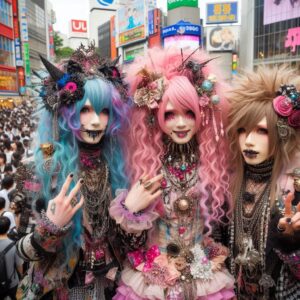類は友を呼ぶとは?
「類は友を呼ぶ(るいはともをよぶ)」とは、性格や趣味、考え方が似ている人が自然と集まりやすいことを意味することわざです。この表現には、人は自分と似た性質や興味を持つ人を引き寄せ、同じような人たちでグループを形成しやすい、という観察が込められています。
このことわざの背景
「類は友を呼ぶ」という表現は、動物や物事が自分と同じ性質を持つものに引き寄せられることからきています。このことわざは、日本だけでなく世界中の文化でも似た表現が存在するほど、普遍的な人間の行動パターンを指しています。心理学的にも、人は自分と似た価値観や性格を持つ人といると安心し、快適さを感じる傾向があるとされています。そのため、意識せずとも似た者同士が集まり、共感や親近感を感じやすいのです。
この表現の使われ方
「類は友を呼ぶ」は、以下のような状況で使われます。
似た性格や趣味を持つ人が集まるとき
趣味や嗜好が似ている人同士が友達になるときや、特定の傾向を持つグループができる際に使われます。例えば、読書好きな人たちが集まって読書会を開くような場面で、「類は友を呼ぶというけれど、本好きは自然と集まるものだね」と表現されます。
性格や行動パターンが似た人が集まる場合
ポジティブでもネガティブでも、似た性格や考え方を持つ人が引き合う様子にも使われます。例えば、楽観的な人たちが集まって賑やかな雰囲気になる場合もあれば、逆に悲観的な考え方の人たちが集まって物事を否定的に話すような場合にも、この表現が使われます。
悪い癖や傾向を持つ人が集まる場合
この表現には、悪い性質や習慣を持つ人同士が集まるという否定的な意味でも使われることがあります。例えば、だらしない性格の人が集まってしまう職場環境などについて「類は友を呼ぶ」という言葉を使って批判的に述べることもあります。
類似表現
「似た者同士」「仲間意識」といった表現も同様の意味合いを持ちます。また、「朱に交われば赤くなる」も、周囲の影響を受けて似た考えや行動を取るようになるという点で関連していますが、こちらは環境の影響による変化を強調する点が異なります。
「類は友を呼ぶ」は、人間の自然な傾向として、性格や考え方が似た人が集まりやすいことを表現したことわざです。この言葉には、仲間意識や共感を大切にするポジティブな意味がある一方で、悪い癖が集まることへの警戒感を示すこともあります。これは人間関係や社会のあり方を洞察する言葉であり、自分がどのような「類」の友を引き寄せているかを考えるきっかけにもなる表現です。
Rui wa tomo wo yobu“ (”Kind calls for friends”) is a proverb meaning that people with similar personalities, hobbies, and ways of thinking naturally tend to get together. This expression expresses the observation that people tend to attract people with similar characteristics and interests to them and form groups of like-minded people.
Background of this Proverb
The expression “Kind calls for friends” comes from the fact that animals and things are attracted to those with similar characteristics to themselves. This proverb refers to a pattern of human behavior that is so universal that similar expressions exist not only in Japan but also in cultures around the world. Psychologically, people tend to feel comfortable and at ease with people who have similar values and personalities to themselves. Therefore, even without consciously realizing it, people who are similar to each other tend to get together and feel empathy and a sense of closeness.How this expression is used
The expression “Kind calls for friends” is used in the following situations.When people with similar personalities and interests get together:
It is used when people with similar interests and tastes become friends, or when a group with certain tendencies forms. For example, when a group of book lovers get together and hold a book club, it is said, “They say that like attracts like, and book lovers naturally get together.When people with similar personalities and behavior patterns get together:
It is also used to describe how people with similar personalities and ways of thinking, whether positive or negative, attract each other. For example, optimistic people may gather to create a lively atmosphere, while pessimistic people may gather to talk negatively about things.When people with bad habits or tendencies get together:
This expression can also be used in the negative sense of a gathering of people with bad traits or habits. For example, the phrase “like attracts like” is sometimes used critically to describe a work environment in which people with sloppy personalities gather together.Analogous expressions
Similar expressions such as “like-mindedness” and “camaraderie” have the same meaning. Also, “like attracts like” is related to “like turns red,” in that people are influenced by their surroundings to think and act in a similar way, but the emphasis here is on change due to environmental influences.Conclusion
The saying “like minds call friends” is an expression of the natural tendency of human beings to gather together with people who share similar personalities and ways of thinking. While this saying has a positive meaning that values camaraderie and empathy, it can also indicate caution about gathering bad habits. This is a word that provides insight into the nature of relationships and society, and the expression also provides an opportunity to consider the kind of “like” friends you are attracting.
AIが描いた「類は友を呼ぶ」






















コメント